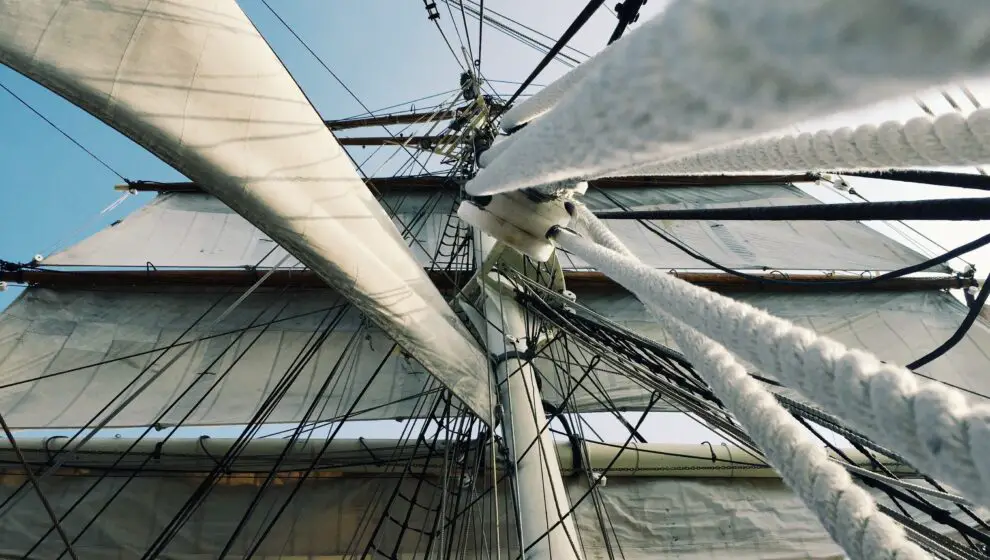A cargo shipping vessel is currently experimenting with retrofitted sails for its maiden voyage as part of a clean energy study.
Key Details
- On Monday, the cargo ship Pyxis Ocean set sail from Brazil to China to test its new “WindWing” technology.
- The two 123-foot “WindWing” sails are built from similar materials used in wind turbines and are designed to test an alternative means of propulsion on the seas.
- This maiden six-week voyage was chartered by shipping firm Cargill Ocean Transportation, using technology developed by UK firm BAR Technologies.
- The test hopes to see if this propulsion method can reduce shipping emissions by 30%, with cargo shipping responsible for 2.1% of global carbon emissions.
Why It’s News
The idea of using wind power to move cargo has drawn some bemusement and dismissal from social media, with many prominent activists making the idea of replacing diesel-powered cargo vessels with ancient sailing technology. Project head John Cooper even acknowledged that “this is one of the most slow-moving projects we’ve done,” but hopes that it can have a major impact on the planet.
It will be more than a month out before the Pyxis Ocean reaches port in China, with companies beginning to evaluate the experiment results. However, Cooper is optimistic that wind power will provide a safe, carbon-free alternative to diesel power that helps shipping companies meet the UN’s 2050 climate targets. He believes new vessels will start being ordered with sail components by 2025.
“Wind is a near marginal cost-free fuel and the opportunity for reducing emissions, alongside significant efficiency gains in vessel operating costs, is substantial,” he continues.
Cargill President Jan Dieleman argues that there is “no silver bullet” in the journey to decarbonizing global industries. However, tests like this are necessary demonstrations for showing the path forward and how quickly the world is changing.
“Five, six years ago, if you would ask people in shipping about decarbonizing, they would say, ‘Well, it’s going to be very difficult, I don’t see this happening any time soon.’ Five years later, I think the narrative has changed completely, and everybody is really convinced that they need to do their part—everybody is just struggling a little with how we’re going to do this. That’s why we’ve taken the role as one of the larger players to underwrite some of the risk, and try things, and take the industry forward,” he tells the BBC.
